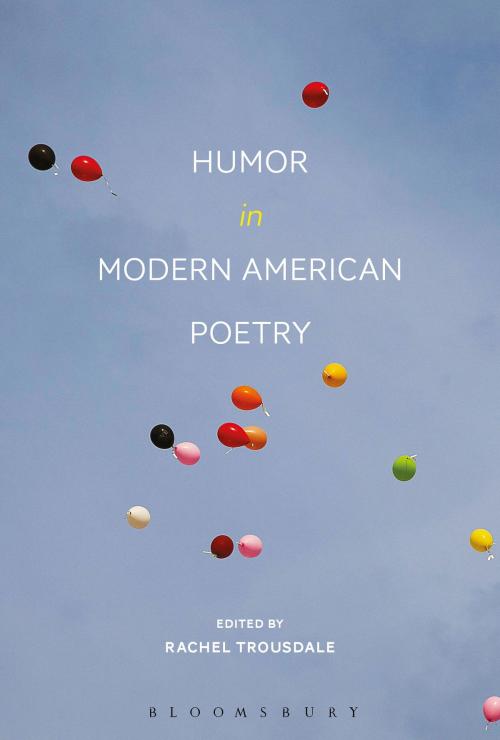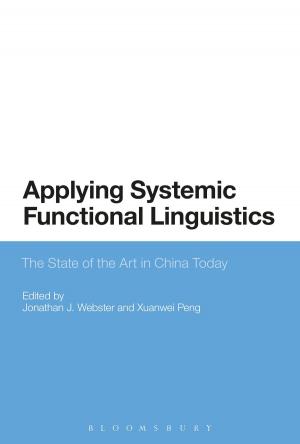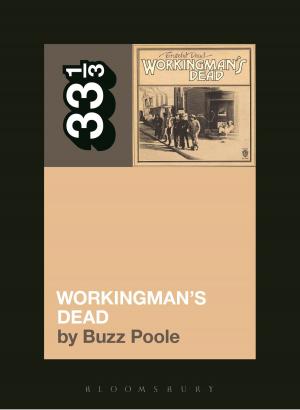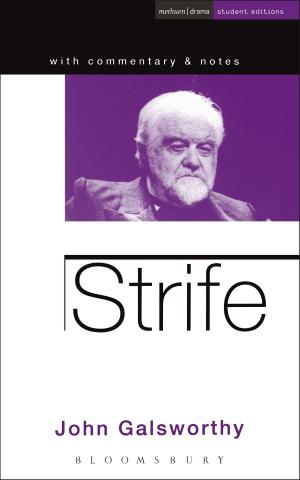Humor in Modern American Poetry
Fiction & Literature, Literary Theory & Criticism, Poetry History & Criticism, American| Author: | ISBN: | 9781628920246 | |
| Publisher: | Bloomsbury Publishing | Publication: | November 16, 2017 |
| Imprint: | Bloomsbury Academic | Language: | English |
| Author: | |
| ISBN: | 9781628920246 |
| Publisher: | Bloomsbury Publishing |
| Publication: | November 16, 2017 |
| Imprint: | Bloomsbury Academic |
| Language: | English |
Modern poetry, at least according to the current consensus, is difficult and often depressing. But as Humor in Modern American Poetry shows, modern poetry is full of humorous moments, from comic verse published in popular magazines to the absurd juxtapositions of The Cantos. The essays in this collection show that humor is as essential to the serious work of William Carlos Williams as it is to the light verse of Phyllis McGinley. For the writers in this volume, the point of humor is not to provide "comic relief,†? a brief counterpoint to the poem's more serious themes; humor is central to the poems' projects. These poets use humor to claim their own poetic authority; to re-define literary tradition; to show what audience they are writing for; to make political attacks; and, perhaps most surprisingly, to promote sympathy among their readers.
The essays in this book include single-author studies, discussions of literary circles, and theories of form. Taken together, they help to begin a new conversation about modernist poetry, one that treats its lighthearted moments not as decorative but as substantive. Humor defines groups and marks social boundaries, but it also leads us to transgress those boundaries; it forges ties between the writer and the reader, blurs the line between public and private, and becomes a spur to self-awareness.
Modern poetry, at least according to the current consensus, is difficult and often depressing. But as Humor in Modern American Poetry shows, modern poetry is full of humorous moments, from comic verse published in popular magazines to the absurd juxtapositions of The Cantos. The essays in this collection show that humor is as essential to the serious work of William Carlos Williams as it is to the light verse of Phyllis McGinley. For the writers in this volume, the point of humor is not to provide "comic relief,†? a brief counterpoint to the poem's more serious themes; humor is central to the poems' projects. These poets use humor to claim their own poetic authority; to re-define literary tradition; to show what audience they are writing for; to make political attacks; and, perhaps most surprisingly, to promote sympathy among their readers.
The essays in this book include single-author studies, discussions of literary circles, and theories of form. Taken together, they help to begin a new conversation about modernist poetry, one that treats its lighthearted moments not as decorative but as substantive. Humor defines groups and marks social boundaries, but it also leads us to transgress those boundaries; it forges ties between the writer and the reader, blurs the line between public and private, and becomes a spur to self-awareness.















